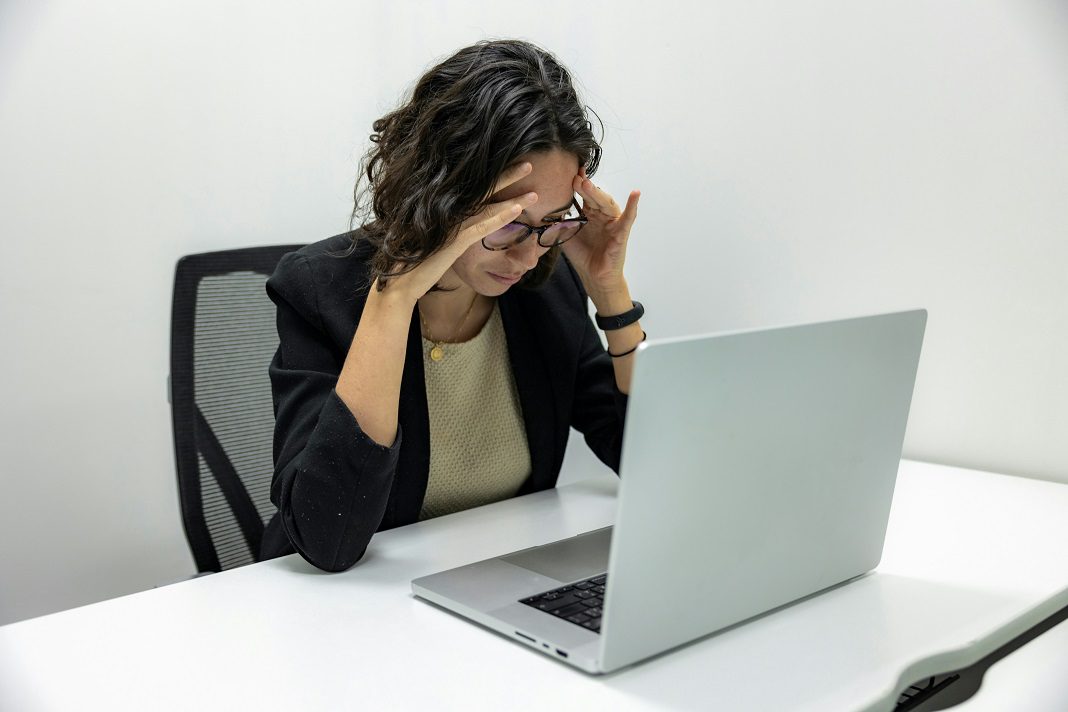By Deirdre Murray, Executive Coach, Trainer and Facilitator with PEOPLE RESOURCES
It’s understandable that all the turmoil of ongoing trade wars, global Trump tariffs, political distrust and general uncertainty about your future can make you feel overwhelmed and burdened by day-to-day pressures.
In the work environment, threats of job “rightsizing”, the impact of AI, pressures to meet tight deadlines and increasingly having to do more with less, can cause increased anxiety, a feeling of being unable to cope and can ultimately lead to burnout.
In a recent UK survey by The Mental Health Foundation, 74% of adults reported feeling so stressed at some point in the past year that they felt overwhelmed or unable to cope. When we explore gender differences, 81% of women and 67% of men reported these feelings. This was even more pronounced among younger people in the 18-24 age group, where 60% said they were unable to cope with pressure to succeed.
According to the Priory Group in the U.K., work-related stress results in over 16 million lost working days, costing the U.K. economy over £28 billion per year. And you wonder, what can you do about it? You may be sitting there feeling guilty that you can’t cope, that you must put your head down and keep going and work through it, that you’re not good enough, or that people will see you as weak and incapable.
However, as I always say to people, ASK for help, because in doing so, you are helping the organisation be more strategic in its planning. You can identify what’s doable and what’s not. The structure, processes and job design may need to change. If you continue to burn yourself out in trying to meet demands, everyone will think that you’re coping well and there’s no need to make a change. You’ll be that invisible hard worker in the corner who gets everything done. But at what cost?
Steps you Can Take To Reduce Overwhelm
What can you do when feeling overwhelmed? Here are 7 practical steps you can take to reduce overwhelm, both in your personal and professional life. As ICF Coach Founder Thomas J. Leonard once said, “Be incredibly selfish, but in a good way.” Put on your own oxygen mask first before you attend to anyone else and it is sound advice. The problem is we rarely take this advice until it is too late and we are completely burned out.
Step1.
STOP – Take a beat.
Stop and recognise what’s happening to you and how you are feeling. Sometimes we are on such a treadmill that we neglect our exercise, our sleep, our eating habits deteriorate and we sit at the desk with a floppy supermarket sandwich on the go instead of a healthy breakfast or lunch. Break the cycle.
Step 2.
Re-evaluate the work you have been assigned to do. You can’t do everything. Identify the top 3 priorities that will add real value to the organisation and will allow you achieve a challenging result. Ask yourself, what could I stop doing that adds no value and is
distracting? What could I outsource? What am I doing that I shouldn’t be doing at all? What can I delegate? There’s a very good article by Oncken & Wass in HBR, “Who’s Got the Monkey?” If you can imagine the monkey Curious George on a little bicycle and you see it
coming and think, ‘it’s a lovely monkey but it’s not mine and I don’t want my desk full of monkeys!’ I need to hand them back.
Step 3. Focus on one thing at a time.
No-one is good at multitasking and this has been borne out in neuroscience research, the-myth-of-multitasking. Only 2.5 % of the population are great multitaskers and they have
probably been practising since the age of three. What we engage in is “task switching.” We alternate from one thing to another but don’t do it as well because our focus is not solely on one thing. We can see this clearly in road crash statistics by An Garda Siochana, where we are 4 times more likely to have an accident if using a mobile phone in the car.
Step 4. Get Fit.
Research shows that 150 mins of moderate exercise, (Mayo Clinic), is good not only for heart health but for your mental acuity. When we’re really busy we stop exercising maybe because it takes too much time or we’re so exhausted when we get home that we don’t have any energy left. Treat it like a meeting with self. Exercise promotes energy and even if you walk briskly for 10 minutes first thing and walk in at lunchtime or in the evening that’s a great start. You don’t have to be a super athlete.
Step 5. Set boundaries
If you don’t set your own boundaries you’ll end up working for someone else’s. With the increase in hybrid-working it’s difficult to step back if you’re working long hours. It’s important to set time boundaries to your day to break the habit. Create a transition between work and home. Plan your top 3 goals for the next day half an hour before you leave and place them on your desk. You only have one battery that needs recharged. If you’re working from home, create a physical transition by going for a short walk at your finish hour.
Step 6. Take regular breaks
Plan your diary, check critical events during the year and plan to take regular breaks, whatever works for you. Whether it’s a two-week holiday or long weekends, get them into the diary so they don’t get eaten up with work schedules. You can decide to do a staycation or foreign holiday but at least you have time set aside. The key is too schedule rest and
relaxation.
Step 7. Mind Your Health
Take a look at your diet and sleep hygiene as well as your exercise levels if you’ve been working long hours. I had one client who kept a full bag of mini chocolate bars in her desk and this was all she was surviving on! See my previous article, Sleep is a Precious Thing
Ask yourself, what is the one thing I would do today that would really help and take positive action.
About the author
Deirdre Murray, Founder and Director of PEOPLE RESOURCES, partners as an Executive Coach, Trainer and Facilitator with leading multinationals and public sector bodies across all sectors. She works with leaders and teams to maximise their potential through focused and timely coaching and leadership development.” Deirdre is co-author of “Emotional Intelligence (EQ) – A Leadership Imperative!” Her second book “Communicate with Impact – Communicate and Influence Successfully,” is out now at www.peopleresources.ie
She is a regular motivational speaker at conferences, seminars and on radio broadcasts and provides journal entries for leading business magazines.








